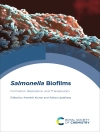Meeting the acute need for a book determining the crucial elements of bioterrorism preparedness, this is a global perspective of the history and current concepts for bioterrorism, integrating the legal, medical, scientific and public health strategies.
It furthermore discusses the role of WHO and international health regulations for bioterrorism preparedness.
For microbiologists, epidemiologists, biotechnologists, public health agencies, and pharmaceutists.
Table des matières
Potential Agents of Bioterrorism: Historical Perspective and an Overview
Bioterrorism Preparedness: Historical Perspective and an Overview
Care of Children in the Event of Bioterrorism
Smallpox: Virology, Clinical Presentations and Prevention
Anthrax: Bacteriology, Clinical Presentations and Management
Plague: Endemic, Epidemic and Bioterrorism
Botulism: Toxicology, Clinical Presentations and Management
Tularemia: Natural Disease versus Act of Terrorism
Viral Hemorrhagic Fevers: Differentiation of Natural Disease from Act of Bioterrorism
Policy Priorities: Smallpox, Stockpiles and Syndromic Surveillance
Legal Preparedness: The Modernization of State, National and International Public Health Law
A propos de l’auteur
Born in Kashmir, India, in 1949, Nancy Misri Khardori gained her MD in Microbiology and Immunology from the All India Institute of Medical Sciences, New Delhi, India, in 1977. She was a post-doctoral fellow at Southern Illinois University School of Medicine, becoming a fellow in infectious diseases at the University of Texas, and then Assistant Professor of Microbiology and Immunology in 1986. She has been Professor of Medicine and Professor of Microbiology and Immunology at Southern Illinois University School of Medicine since 1995, where she also holds several posts as Medical Director. Professor Khardori works in the American Society of Tropical Medicine and Hygiene, the American Heart Association, Illinois State Medical Society, and the Illinois Department of Public Health. Nancy Khardori is a fellow of both the American College of Physicians and the Infectious Diseases Society of America, and is a member of numerous societies, including the American Society for Microbiology, the American Society for Internal Medicine, American Medical Association, New York Academy of Sciences and the International Society for Infectious Diseases. She is a reviewer for six journals and consults on new drug development for two companies. Her research currently focuses on the diagnosis and management of infectious diseases, infections in immunocompromised patients, viral hepatitis and sexually transmitted diseases.










